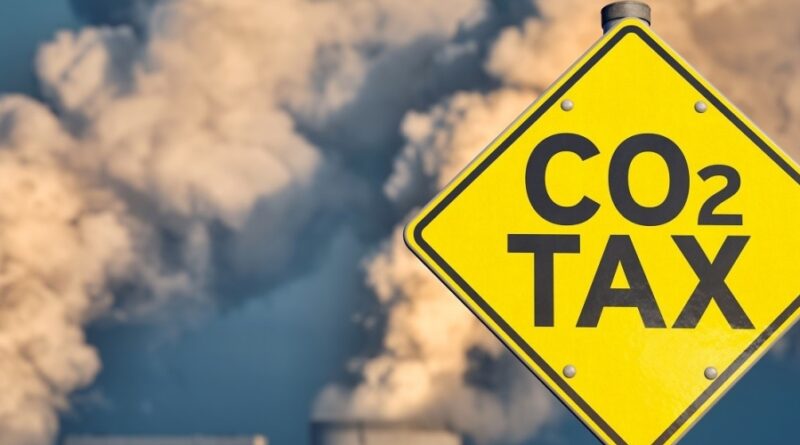The Price is Right: Solving Climate Crisis with a Carbon Tax
If there is one thing Americans have in common, it’s fear of the t-word: taxes.
And that understandable fear is making it hard to build political capital for one of the best, most efficient and effective ways to reduce carbon emissions: a revenue-neutral, border adjustable carbon tax.
In March, the IPCC released its third installment of its last report. The bad news is: we don’t have much time to stop irreparable damage. That’s scary, but the good news is: we have a little bit of time and we know exactly what we need to do to stop climate change. We need to cut our carbon emissions. We know how to do this — and we have the technology to get started. What our lawmakers lack is the political courage to make it happen.
For the past two years, I have beat the drum on bipartisanship solutions and elected officials coming together to solve the climate crisis. However, my call for putting climate over party has fallen on deaf ears.
I could spend all day offering reasons why bipartisan agreement on climate change is elusive. But the bottom line is — regardless of the reason — both sides of the aisle should put their differences aside, overcome their fear of the t-word, and get firmly behind a carbon tax. The carbon tax is our fastest, best chance at solving climate change. While the idea of another tax may have some Republicans rolling their eyes, the truth is, done right, a carbon tax could be structured to reduce payroll taxes, putting money back in the pocket of all Americans. And Democrats, worried that a carbon tax would disproportionately hurt lower income brackets, could write the policy in a way to ensure our nation’s poorest communities aren’t left worse off. In short, the carbon tax would position us to greatly reduce our carbon emissions, which in turn would benefit all humankind, including those in the greatest need. Not to mention the benefits accrued by addressing the existential crisis of a generation or more.
As a society, we tax behaviors we want less of such as smoking, tobacco, porn, etc. As it currently stands, the industries that emit carbon are doing so for free. Imagine that. In 2022, knowing all we know about the impacts of pollution on our health and our earth, industries are free to pollute with wild abandon and zero consequences. However, there is no such thing as a free lunch; Americans are taking the hit. Climate change doesn’t just hurt the oceans and the environment; it’s an economic issue, a public health issue, and a safety issue. Americans pay every time a natural disaster hits. In 2021, the U.S. experienced 20 natural disasters. One in ten American houses — over 14.5 million homes — were impacted, costing $57 billion. While scientists are loath to say “x natural disaster was caused by climate change” the types of events we’re experiencing are going to happen more frequently and more severely under the conditions created by climate change.
But here we are, afraid of the t-word. Our fear is misplaced. We should be afraid of what happens if we don’t act now.
Last month we honored Earth Day, and in that spirit, I challenge lawmakers of both parties to stop reading from their talking points, stop being afraid to take courageous action, extend a hand across the aisle and have an honest negotiation. While a photo-op picking up trash is great for social media, it’s nothing more than slacktivism. America demands more and Mother Earth deserves better.
Originally written for and published on RealClear Energy.

